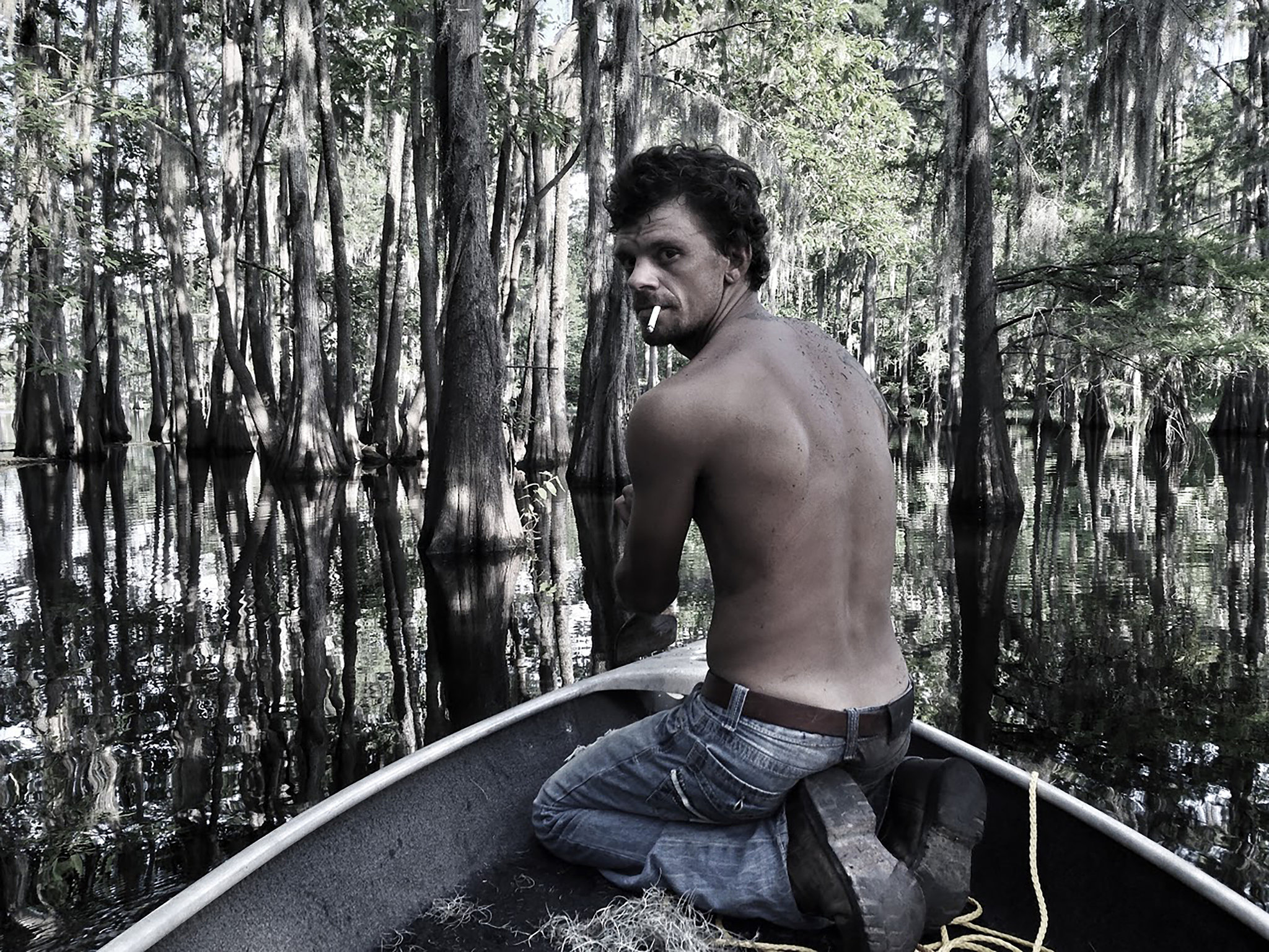“Given my job,” writes MSNBC’s Chris Hayes in a review of Michiko Kakutani’s new book about the Trump era, The Death of Truth, “I am forced to ask myself every day: Is it possible to say anything truly profound or new about Donald Trump at this moment in time?”
Near as I can figure, the answer is no. And the same goes for the ascent of similarly far-right individuals, parties and movements around the world, which have come to be grouped together as instances of a broader trend or ideology—namely, populism.
The term, in my estimation, is so broad as to be basically meaningless. It is used to encompass and explain not only Brexit, Donald Trump and European right wingers like Marine Le Pen and Viktor Orban, but also democratic socialists Bernie Sanders and Jeremy Corbyn, Asian strongmen Rodrigo Duterte, Narendra Modi and Recep Tayyip Erdoğan, and grassroots social movements like Occupy Wall Street, Greece’s governing Syriza party and Spain’s Podemos. Even qualified as right-wing, populism has become a buzzword that serves not so much an analytical purpose as a performative one, conjuring the spectres of fascism, authoritarianism, nativism, racism, xenophobia, misogyny, homophobia and all the other bêtes noires of modern liberal democracy. It does this while ignoring the real story about populism, which, if you haven’t been paying attention, can be summed up quickly: populism appeals to populaces alienated from the political, cultural, social and economic mainstream; populists’ promises are hollow, and at any rate unimportant to their bases, who just love that they seem genuine, and angry at the right people; once in power, populists revert to the kinds of corruption and regressive conservatism that characterize many or even most regimes, even democratic ones.
That’s the story, more or less, and it’s why someone like Chris Hayes is sick of having to think of new, interesting things to say about it.
The documentary community, naturally, didn’t get the memo. Many are the documentaries that have taken on these topics; few have anything much to say beyond what you’d read in the news on any given day. I could only laugh at Hot Docs’ catalogue copy for Jack Bryan’s film Active Measures, hyping it as a bombshell investigation into Russian intervention in the 2016 American election. We are all, of course, perfectly aware that investigations by people and institutions with resources several orders of magnitude greater than any documentary film could possibly have are slowly but surely building their own cases on the matter, which are not yet public, and that news breaks every day that no documentary could possibly cover.
What could such a film possibly tell us? Charles Bramesco sums it up in his Guardian review of Active Measures: “The most widespread affliction facing documentary cinema today is known as Wikipediitis, a malady wherein a feature-length film would be better served by the form of a written article.” Our New President (dir. Maxim Pozdorovkin), a more aesthetic, considered film that uses Russian footage to tell the story of the American election, is similarly limited by its focus. Count me among those that refuse to believe Russian memes had anything significant to do with the ascent of Trump—or rather, that ridiculous, half-baked propaganda only works on profoundly stupid and alienated and basically abject populations, so we should focus on why America seems to be all of those things. (Not that Canada is any better, mind you.) The Cleaners, a film about content moderators in the Philippines, more or less repeats the same mistake: fake news is a real problem, but it’s secondary—downstream, as it were, from a predisposed populace. Again, and forever: let’s talk about why people are shit. Or more politely—let’s talk about how to integrate people back into the social, economic, political and cultural mainstream, such that internet bullshit looks to them the way it does to you, dear reader, and me, stupid writer.
These are precisely not the kinds of film that would have anything interesting to say about populism as such. They miss the point completely. We know the facts; we understand, for the most part, the bizarre and almost occult attraction that the likes of Trump have for millions of people. At least on the left, I think we understand the colossal failings in the social, political and economic systems at all scales that have provided the conditions of possibility for these populist farces—neoliberalism, in a word. We understand that the likes of Trump and Putin are nothing so much as internet trolls come to life, whose monopoly on our attention is mobilized as a Trojan horse by the very elites those demagogues conned the public into thinking they were going to take down. Bizarrely, they are now able to enact their own agendas with impunity in the shadows, while their fans seem to love every time a new anvil is dropped on their heads. It’s infuriating, not least because it’s all been pointed out a million times. For documentary to contribute meaningfully to our understanding of populism, it can’t be reportage, narrative, character study. It has to dig deeper.
But let’s back up. What is populism, anyway?
According to Dutch political scholar Cas Mudde, “Populism is an ideology that considers society to be ultimately separated into two homogenous and antagonistic groups, ‘the pure people’ and ‘the corrupt elite,’ and argues that politics should be an expression of the volonté générale (general will) of the people.” In an interview, Mudde clarifies that the difference between populism and democracy is twofold: “It is both the homogeneity and the morality [of its notions of “the people” and “the elite”] that sets populism apart.”
It’s clear enough how the current crop of populists engage in this rhetoric. What’s less clear to me is that non-populists don’t. Politicians of all stripes attempt to appeal to and claim to represent some variant on the good, hard-working, regular folks out there, the little guy, the real Americans, Canadians, or what-have-you. They all travel the country and shake hands with small-business owners and factory workers and somehow imply they are on their side. Arguably, the entire art of modern campaigning is basically populist. The style, in short, is not the exclusive property of the current crop of nominal populists: Western indirect democracies, neoliberal economies, media spectacles and political-campaign-as-morality-play cultural norms have proven fertile ground for populism for a long, long time.
This is important because it situates the current populist moment not as a radical break from the past but as a sort of hyperbolic extension of deep historical trends. This is the only way to see it, I think. Donald Trump didn’t have to be normalized—in most salient ways, he was already normal. That is to say: don’t let the crudeness fool you; Bush was much worse.
I have suggested that there aren’t a ton of great documentaries about populism. This is true. Fortunately, it’s not terribly important, because there happens to be one great one, which sums up just about everything that has been said about populism in the last couple years by both “the people” and “the experts”—and does so, moreover, with intriguing style and structural rigour. The film is Brexitannia (dir. Timothy George Kelly). It is to Brexitannia’s credit that it is just about as frustrating to watch as these times are to live in, or this article is to write.
The film is in two (fittingly) unequal parts: “the people” and “the experts.” The first hour is a thematically arranged sequence of austerely composed vox pops. Kelly frames people alone against their environments—a football field, an office, a town square, a living room, an apartment block—and lets them talk about Brexit. It covers basically everything. Writing out the litany would be superfluous— you’ve heard it all before. What’s interesting about the film is both the fact it covers all its bases—impressive in itself—and the way it does this without any obvious editorializing, letting people present their opinions on their home turf, in their own distinctive voices. I was reminded of Brett Story’s wonderful 2016 film The Prison in Twelve Landscapes for the way in which it used a schematic, almost Oulipoesque formal device, integrating filmic elements often neglected in talking-head documentaries—setting, composition, vocal cadence, logical flow—to cut to the core of the issue at hand from an oblique angle. Boris Johnson and Nigel Farage, even David Cameron and Jeremy Corbyn, don’t come up—and why should they? It was “the people” who voted.
The final twenty minutes abruptly shifts from “the people” to an all-star cast of Noam Chomsky, Saskia Sassen, Nick Srnicek, Guy Standing, Heidi Mirza and Federico Campagna. They are uniformly brilliant: Sassen meditates on the multinational corporate expropriation of natural resources that rightly belong to local populations, leading to the arrival on Europe’s shores at exactly the same time of bottled water and the people driven out by that very bottle’s production; Campagna talks about the betrayal of the promise of automation; Srnicek talks about self-driving cars moving from utter fantasy to embryonic reality within ten years, and what that will mean for an America in which truck driver is the most popular job in 80% of states. Probably the most damning word goes to Standing, though. “No government in Britain has won since 1974 without the active support of Rupert Murdoch,” he says. Murdoch, of course, backed Brexit, mobilized his media empire in support of it, and won as always. “Rupert Murdoch was asked by the press why he supported Brexit,” Standing continues. “Very revealing answer—he must be getting old. ‘When I go to Downing Street, they do as I tell them. When I go to Brussels, no one takes any notice!’” The pathetic thing about it is that it’s basically the same answer as Joe Q. Brexiter would give—only, of course, poor Joe is fooling himself that he has any sway over Downing Street. It’s the classic populist story: make it look like “the people” are in charge, while the elites—not the “cultural elites” that populists rail against, but the actual elites, the superrich who run the world—consolidate their power behind the scenes. And again, this is all known, but somehow not by enough people, or by the right people. Kelly is right to tack the experts on at the end. Insightful as they are, their voices count just as much—that is to say, as little—as everybody else’s.
Another interesting, if somewhat unsatisfactory, contribution is Astra Taylor’s new film What Is Democracy? Interesting, because it raises the question of democracy; unsatisfying, because the question is ultimately unanswerable.
What Is Democracy? puts the question of democracy to a fittingly motley crew that ranges from scholars like Cornel West and Wendy Brown and politicians like George Papandreou and North Carolina state representative Mickey Michaux to groups of school children, refugees and ex-inmates. From the beginning, Taylor lays out the problem: democracy is never actualized, horrible crimes have been committed in its name, yet it’s worth fighting for. Her film takes us from Plato’s Republic all the way up to Donald Trump. It certainly covers its bases.
But the film’s actual argument is harder to pinpoint. As many of Taylor’s interviewees point out, democracy just means the rule of the people. There is no assumption of difference or plurality built into it, as Cas Mudde would have it. There’s just the assertion that ordinary citizens and not unaccountable elites should make the decisions that govern their lives. Hovering in the background, then, is always the spectre of class: if there are rich people and poor people, there can’t be democracy. This is what gives rise to demagogues—populists—who promise to take down the aristocrats. At the same time, we do live in plural societies, and populists have made hay turning parts of their countries against each other. That’s why we like to say we are liberal democracies, reining in the excesses of democracy—mob rules—with institutional protections for minority rights.
The film won’t quite come out and say that the three pillars of contemporary Western, and, increasingly, global, political economy—democracy, liberalism and capitalism—are fundamentally at odds with each other. Again, it’s the old story: during the postwar boom in North America, Western Europe and Japan, these three pillars were basically in balance (often, obviously, to the detriment of those in other parts of the world) and, since the 1970s, have gotten out of proportion, with capitalism running wild over democracy, in the first place, and now, more recently, liberalism as well—to the detriment of just about everybody.
I feel I ought to say something about left-wing populism, but I have qualms. People have drawn a false equivalence between right-wing populism and left-wing populism as though they were in any way comparable. In fact, there is a good argument that populism as such specifically excludes any such thing as a left-wing populism. The left, by nature, advocates for a specific class—workers—against another specific class—bosses—not for “the people” generally against some nebulous “elite.” There might be left-wing demagoguery or authoritarianism, but left-wing populism is a contradiction in terms, nothing but an epithet thrown at perfectly legitimate popular struggles against real problems: bankers, authoritarian governments, corruption, oligarchy.
That could be one of the reasons why documentaries about so-called left-wing populist movements, like Politics, Instructions Manual (dir. Fernando León de Aranoa, 2016), which tracks the rise and early trials of Spain’s Podemos party, or An Insignificant Man (dir. Khushboo Ranka and Vinay Shukla, 2016), about the anti-corruption campaign of Delhi activist and, later, Chief Minister Arvind Kejriwal, along with any number of “movement of the squares” documentaries — The Square (dir. Jehane Noujaim, 2013), Maidan (dir. Sergei Loznitsa, 2014), Kinshasa Makambo (dir. Dieudo Hamadi, 2018) — have such a different flavour than do films about right-wing populism. These are hopeful films, sincere and thoughtful and critical and committed. By contrast, even the most sympathetic films about the populism wave of the last few years, and most of the media coverage as well, feel almost anthropological, striving to make sense of how one’s neighbours could harbour such ridiculous and offensive beliefs or let themselves be led so far astray by two-bit Pied Pipers.
It’s easy enough, at this point in time, after years of think-pieces and beleaguered late-night conversations, to sympathize with certain elements underlying the populist wave—the shrinking middle class, the rise of precarious work, even the cultural nostalgia insofar as it follows from economic insecurity, and so on. But it’s clear that the people and causes channelling that energy have done nothing but betray it. It’s just as Walter Benjamin said: every rise of fascism bears witness to a failed revolution.
When Trump was still a candidate in the Republican primaries, a friend recommended I watch Roberto Minervini’s 2015 film Louisiana: The Other Side if I wanted to understand the kind of people who would vote for him. The film predates the populist moment, but is almost prophetic in how it depicts the kind of landscape—Trump Country—that started to dominate the news just after the film’s release.
Louisiana is about drug addicts and militias in the Deep South. It’s a world of trailers, bayous, prison, racism, heroin and guns. It’s lurid. There is tenderness, sort of—a couple in love; camaraderie within the militia—but it’s basically horrifying. It’s also, for all the accusations of exploitation leveled at it, absolutely essential viewing. Centuries of corruption—in the strongest sense of the word—have made much of America a shithole, and the few people left find meaning and survival using whatever fucked up means are left to them. It’s not pretty, but it’s real.
If documentary is to have a role to play in understanding populism, it will have a lot to do with this. Louisiana and Brexitannia both begin with close observation, conversation and even collaboration with people not often represented in documentary film, or in media generally. And both films develop the ideas and emotions that they discover there into provocative arguments about the state of politics today. They do not shy away from contradiction and complexity—they embrace it. Nor do they shy away from the people, many of whom they must hold in contempt. At the same time, history is always in the background. This is not empty provocation or exploitation: it is about fleshing out the history of the long decline of Western civilization. This is the shitty world we live in. There is nothing to gain from turning away from it. Figuring out how to fix it begins with facing up to it.












